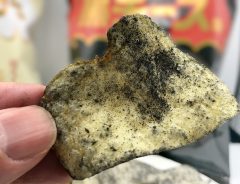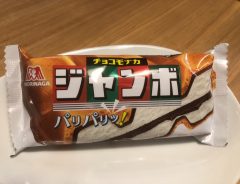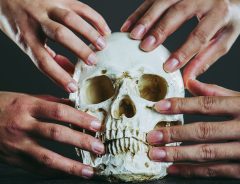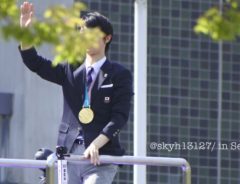
Source: (C) Pakutaso
Japanese Comedian’s Blackface Met With Both Indignation and Indifference Online
- Source:
- (C) Pakutaso / @waragamisamaww / @Locohama / @locohama / @nodokajcp / @squaremania / @toshikin3 / (C) Baye McNeil / (C) Sankhon Systems Co., Ltd.
- Tags:
- 2020 Olympics / african american / anger / Anton Wicky / Baye McNeil / Black / blackface / Controversy / cultural imperialism / doowop / Downtown / foreign community / Gaki no Tsuaki Ya Arahende!! / Gaki no Tsukai / Hama-chan / indifference / indignation / Konishiki / Masatoshi Hamada / minstrel show / Momoiro Clover Z / Nippon Television / Olympics / opinion / outcry / Outrage / personality / petition / prejudice / racial discrimination / Racism / Rats and Star / Sankhon Ousmane / Shigeru Matsuzaki / talent
Related Article
-

“Dirty chips” we found at Japanese convenience store have a devilish surprise
-

Japanese Twitter celebrates Olympic reporter discovering greatest convenience store ice cream
-

Bones of 187 Human Bodies Discovered Near Tokyo’s New Olympic Stadium
-

Jason ponders Friday the 13th festivities while everyone is distracted by Olympics
-

Olympic Skater Yuzuru Hanyu’s Wild Popularity is Confirmed by Hilarious Photo Fails
-

Japan Urges Foreign Tourists To Stop “Sand Graffiti” On Ancient Dunes


During a popular year-end comedy show on national broadcaster Nippon Television, Masatoshi Hamada of the famous Japanese comic duo Downtown appeared in a brief segment in blackface wearing the same clothes as Eddie Murphy's character in the film Beverly Hills Cop. The segment aired during a special version of the long-running comedy show Downtown no Gaki no Tsukai ya Arahende!!
This is not the first time blackface has appeared on Japanese television. For example, in 2015, the doo-wop group Rats & Star, who always perform in blackface, posted a picture of themselves preparing for an upcoming television appearance, and posing with idol group Momoiro Clover Z, almost everyone in blackface and wearing minstrel-style clothes. The picture went viral and the backlash was swift, causing the TV network to withdraw the segment. Although less direct but also questionable is the case of singer Shigeru Matsuzaki who has made a name for himself by having an incredibly dark tan and has lent his likeness to various brands such as Calbee potato chips, where his face is invariably darkened in a type of "digital blackface."
The reaction online to the comedy show segment was mixed.
On the critical end of the spectrum, writer Baye McNeil tweeted the following:
To that end, McNeil encourages Japanese media producers to change their approach, subsequently tweeting: "Note to japanese performing in #BlackFace: #Blackness is not a punchline nor a prop. Need jokes? Get better writers. Need a black character, get a black actor that speaks Japanese. There are several! But please #StopBlackfaceJapan not a good look!"
Criticism was voiced by Japanese people as well.
For example, Japanese politician and Twitter user Nodoka Saito, who also wrote eloquently on the blackface issue in her blog, said:
--"Blackface, painting one's face black and performing the role of a black person, is an act deeply marked by the history of racism and prejudice against blacks. Around the world, it is considered something you must absolutely not do. Yet here in Japan, it is turned into fodder for comedy. It's just too sad..."
Twitter user @squaremania criticized the way the other participants laughed at Hamada's mere appearance:
---"(About) blackface on Gaki no Tsukai. I wish that both those who are saying: "Is it discrimination if you just cosplay Eddie Murphy?" and those who are saying "Even if you're cosplaying Eddie Murphy, discrimination is discrimination" would look at the show carefully. They broke out in laughter as soon as he appeared in blackface without any explanation (...) It's completely unacceptable."
However, on the other side of the spectrum, some did not find Hamada's blackface problematic.
For example, Egyptian-born Japanese TV personality Fifi had this to say:
---"I wonder if those who are clamoring that it's discrimination to paint [your face] black have a negative image [of blacks]. Some people tan themselves to the point that they approach the [appearance of] black people because they yearn for dark skin, while others emulate black fashion. You may get criticized for doing it depending on your intentions, but is it discrimination just to impersonate a black person? I get the impression that it's precisely people who make such comments who view racial difference in terms of superiority or inferiority."
Twitter user Mina Jyounouchi feels that the claims of discrimination are unfounded, tweeting: "I don't think this show is interesting so I didn't watch it but based on this (Yahoo) article, I find it hard to call this performance discrimination. If you're trying to judge Japan by applying the same yardstick as the US and European nations who built their wealth hunting down blacks and selling them as slaves, you're barking up the wrong tree. Japanese people have a history of loving Wicky-san [Ceylon-born educator and celebrity Anton Wicky], Sankon-san [Guinea-born TV personality Sankhon Ousmane] and Konishiki-san [Hawaiian-born sumo wrestler Konishiki Yasokichi]."
While there is an abundance of comments from both Japanese and non-Japanese that even in the absence of malice or intentional discrimination by the parties involved, the continued performance of blackface in Japanese media is hurtful to black people, particularly to those who call Japan their home, and potentially damaging to Japan's international reputation, the definition of what constitutes discrimination when it comes to blackface performance in Japan is still being hotly debated in social media.
By - grape Japan editorial staff.